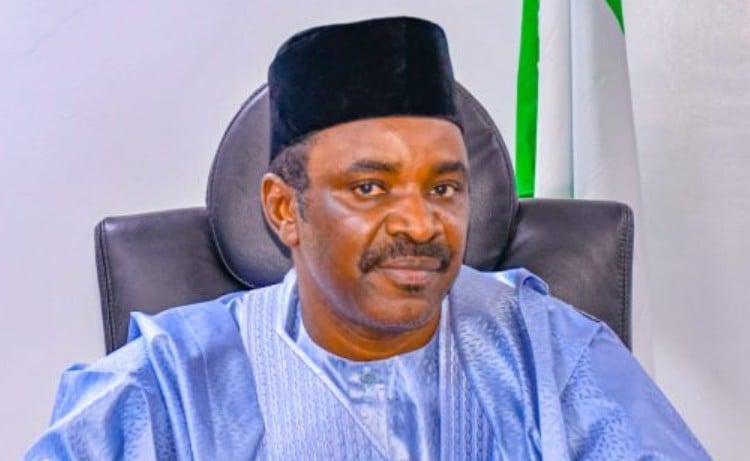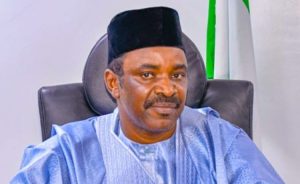
FG BEGINS UNBUNDLING OF NIGERIAN RAILWAY CORPORATION AS TINUBU ADMINISTRATION DRIVES TRANSPORT REFORMS
By Aishat Momoh. O.

The Federal Government has commenced the unbundling of the Nigerian Railway Corporation (NRC) as part of sweeping reforms to reposition the country’s transport sector for global competitiveness, efficiency, and sustainable growth.
The Minister of Transportation, Senator Said Ahmed Alkali, disclosed this on Tuesday at the 7th National Conference of the Chartered Institute of Transport Administration of Nigeria (CIOTA) held in Abuja.
Themed “Repositioning Nigeria’s Transport Infrastructure and Governance Models for Global Competitiveness,” the conference brought together policymakers, industry leaders, and development partners to deliberate on transforming Nigeria’s transport system into a globally competitive network.
Alkali announced that the Federal Executive Council (FEC) had approved the long-awaited National Land Transport Policy, describing it as a “historic milestone” that would harmonise standards, strengthen coordination, and enhance private sector participation.
“The administration of President Bola Tinubu is implementing critical reforms and investments across all transport modes to drive economic growth and improve logistics efficiency,” the minister stated.
Highlighting key achievements, Alkali said the Lagos–Ibadan and Abuja–Kaduna standard-gauge rail lines were fully operational, while the Kaduna–Kano segment was nearing completion. He added that work was advancing on the Kano–Maradi line, linking Nigeria to the Niger Republic, as well as on the Port Harcourt–Maiduguri Eastern Narrow Gauge.
“A new Ibadan–Minna Standard Gauge line has also been approved to deepen national connectivity and enhance freight efficiency,” he revealed.
The minister further explained that the Public-Private Partnership-driven e-ticketing platforms on major train routes had improved transparency and user experience, while a special committee was reviewing ticketing challenges on the Abuja–Kaduna route.
He confirmed that the unbundling of the NRC was underway to improve operational efficiency and service delivery, marking a major shift from the corporation’s decades-long monopoly structure.
“The Federal Government has begun unbundling the NRC to separate its operational, regulatory, and asset management functions in line with global best practices,” Alkali said.
He noted that the Federal University of Transportation, Daura, was now progressing steadily as Nigeria’s premier transport research and innovation centre, driving human capital development across all transport modes.
Alkali lauded CIOTA for its role in advocating transport policy reforms, adding that the institute’s sustained engagement was instrumental to the policy’s eventual approval after years of delay.
He also highlighted ongoing efforts to decongest Apapa Port, improve road connectivity, and promote multi-modal cargo evacuation systems.
On innovation, the minister announced that engineers at the Nigerian Institute of Transport Technology (NITT), Zaria, had successfully developed logistics drones, signalling Nigeria’s readiness to adopt smart mobility and intelligent transport systems.
“The future of transport will be driven by innovation. We are ready to harness blockchain-enabled logistics to ensure transparency and sustainability,” he said.
Alkali urged greater collaboration between the public and private sectors, academia, and professional bodies, noting that “transforming Nigeria’s transport ecosystem cannot be achieved by government alone.”
The unbundling of the NRC forms part of the Federal Government’s National Transport Policy and the proposed Railway Bill before the National Assembly. The reform seeks to split the NRC into multiple entities including a regulator, infrastructure manager, and service operators mirroring systems in South Africa and the United Kingdom.
This shift aims to promote private sector participation, enhance efficiency, and ensure accountability within Nigeria’s rail operations.
In his opening remarks, CIOTA President Segun Obayendo applauded the progress made under the Tinubu administration but urged state governments to adopt their own transport policies to complement federal initiatives.
He noted that while the federal government had approved national frameworks for land and marine transport, only Kaduna and Lagos States currently have operational transport policies a gap he described as “unsustainable for a nation seeking global competitiveness.”
“A passenger should be able to travel from Kano to Lagos by rail, connect to an international flight, and have their cargo move simultaneously through efficient logistics chains,” Obayendo said.
He charged CIOTA members to be “co-architects of Nigeria’s transport future” through professionalism and continuous capacity building.
“Transport is not just about moving people and goods it’s about moving a nation forward,” he concluded.
CIOTA, chartered by an Act of Parliament in 2019, remains Nigeria’s foremost professional transport body and a key player in policy advocacy and sectoral reform.
